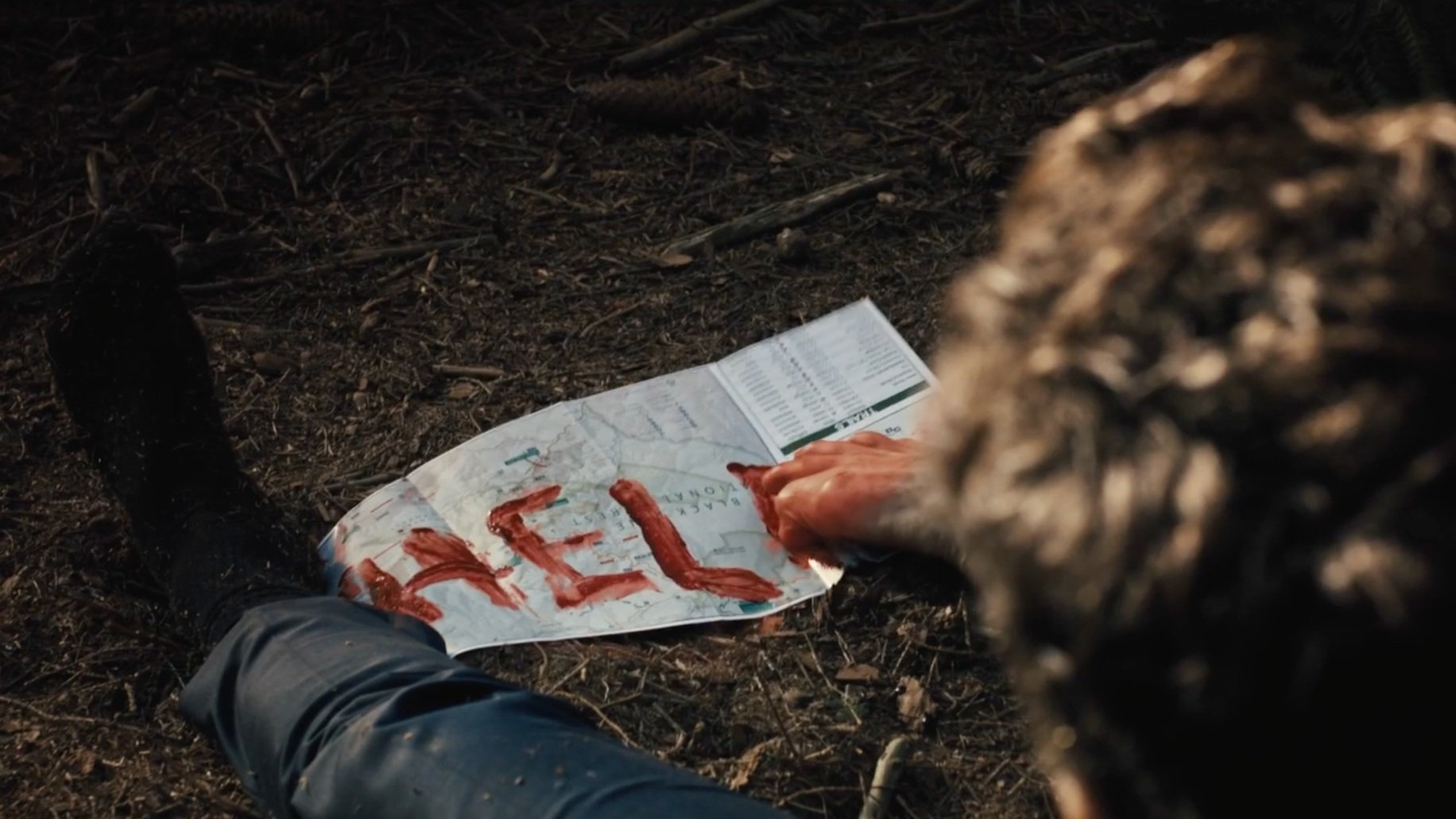Bark Gets Tied Up by Its Own Premise
Michael Weston in Bark
Two or more people trapped in a strange location, their memories of their former lives before the events of the film fuzzy and strange. A character who seems to know more about the situation than the rest. Dialogue that builds in backstory and pushes the viewer to imagine a world outside the tight confines of the film's central location. It's a very popular story for indie films like Saw or Cube to tell, and for good reason—a single location is cheaper to shoot, the limited cast saves budget and allows the acting and dialogue to shine, and, if done properly, the limited scope can make the viewer feel as claustrophobic and trapped as the central characters.
In Bark (2023), German director Marc Schölermann pushes the micro-genre's tradition of tight corners and a locked door into the outdoors—specifically a wide-open forest. Nolan Bentley (Michael Weston) wakes up with his hands tied behind a tree, his memories hazy, and his business suit attire decidedly not suited for the outdoors. Soon, an outdoorsman (A.J. Buckley) arrives, seemingly uninterested in either helping or harming Nolan. Instead, he seems content to listen to Nolan talk, or, at least, to let Nolan talk at him as he sets up his camp right next to the tree. From there, the film slowly reveals who Nolan is and what might have led someone to enact such a nasty revenge on him.
These types of movies live and die on the strength of the performances, and Weston and Buckley are well-suited to the task. As Nolan, Weston whines, bargains, begs, and threatens the outdoorsman for release and assistance, pushing and prodding at whatever weakness might allow him to escape. And while Buckley has the more staid role, there are moments of quiet anger or frustration or black humor that emerge as the outdoorsman watches Nolan squirm. It's a fluid dynamic that's able to keep the film moving through its brisk ninety-minute runtime as the viewer's sympathy is constantly tested and shifting.
A.J. Buckley in Bark
Film is an empathetic medium, and it's difficult to watch someone trapped without wanting them to escape in some way—and yet, film is a judgemental medium, too, each shot and line is made with clear intent and purpose, and we are invited to judge Nolan and question his "deserving" of freedom and of life. It helps, too, that the setting around the two men feel so utterly lush and alive. This is not the dungeon in Saw or the cube rooms in Cube—this is a beautiful forest (outside of Hamburg, Germany) filled with trees and animals, with civilization just around the corner. There is an escape possible for Nolan if he can find the right words to convince the outdoorsman, the right angle to cut open the rope, the right savior at the right time. The film is at once deeply claustrophobic and brimming with possibility, both sympathetic to Nolan's plight and as removed and watchful as the outdoorsman staring at him.
It's only at the end that this careful balance tips, as Schölermann and writer Steve Fauquier end their game of moral chicken with the viewer by blinking hard. Nolan's crime—his true crime—is revealed to be so universally reviled that he might as well be a pedophile for how little sympathy most viewers will have for him by the end. It unravels so much of the careful tension and shaky loyalty the film has built, leaving only one possible emotional reaction to the film unless a viewer feels peevishly contrarian. Still, it's a compelling ride to go on, even if you might wish that the film felt freer to explore the darker corners of its woods.




Ziah is the founder and former editor-in-chief of the Hyperreal Film Journal. He can usually be found at Austin Film Society or biking around town.